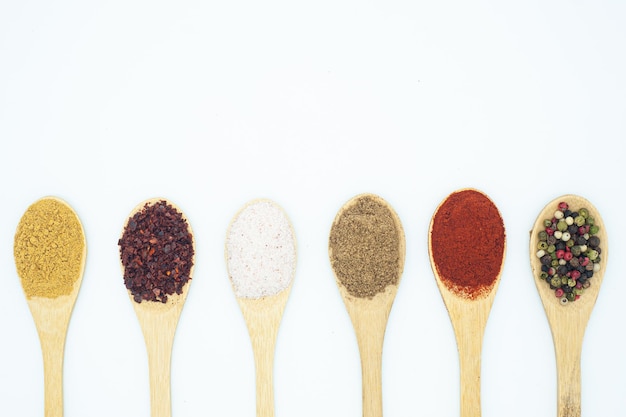Sesame, known as Sesamum, grows well in tropical areas around the globe. These plants produce seeds that are prized for their culinary and health benefits. Whether consumed whole or hulled, dried or toasted, sesame seeds are a versatile ingredient in many dishes. They are also used to extract edible oil, leaving behind a byproduct known as sesame flour.
The Growing Trend of Sesame
Sesame seeds and their products are becoming more popular worldwide due to their outstanding nutritional benefits. They are rich in healthy fats, including polyunsaturated and monounsaturated fats, which are great for heart health. Additionally, sesame seeds provide lots of dietary fiber, aiding in digestion and helping maintain a healthy weight.
Besides fats and fiber, sesame seeds are packed with vitamins and minerals. They are especially high in B vitamins, important for energy and brain health, and minerals like calcium, magnesium, and zinc, which support bone health, muscle function, and the immune system.
Their rising popularity is due not only to their nutritional benefits but also to their versatility in cooking. Sesame seeds add a distinctive nutty flavor and satisfying crunch to a wide range of recipes, from bread and pastries to salads and stir-fries. This adaptability makes them a favorite in kitchens around the world.
Nutritional Profile of Sesame
Sesame seeds are highly nutritious, providing ample energy mainly from fats, followed by carbohydrates and proteins. They are also rich in fiber and various minerals and vitamins. Here鈥檚 a detailed look:
Fats: Sesame seeds are about 40 to 60% fat, mostly healthy unsaturated fats like oleic acid and linoleic acid. These fats are known for heart health and anti-inflammatory benefits.
Vitamins: Sesame seeds are rich in B vitamins like Thiamine (B1), Riboflavin (B2), Niacin, Pyridoxine (B6), and Folate, crucial for energy and neurological health. They also contain vitamin E, an antioxidant.
Carbohydrates and Fiber: Roughly 23% carbohydrates help provide energy, and 12% fiber aids in digestion.
Proteins: The protein content in sesame seeds has a medium biological value and includes essential amino acids like methionine and tryptophan, important for protein synthesis and neurotransmitter function.
Minerals: Sesame seeds are loaded with essential minerals such as calcium for bones, iron for oxygen transport, phosphorus for bone and tooth formation, magnesium for enzymatic reactions, and zinc for immune function.
Antioxidants: Sesame seeds contain unique lignans like sesamolin and sesamin, offering protection against oxidative stress and reducing the risk of chronic diseases.
Antinutrients: They do have certain antinutrients like phytates and oxalates, which can slightly hinder calcium and iron absorption. However, the health benefits far outweigh these minor drawbacks.
Incorporating sesame seeds into your diet can diversify your nutrition and offer a range of health benefits, making them a vital part of a balanced diet.
Culinary Uses of Sesame
Sesame seeds are cherished for their nutty taste and delicate crunch, making them a versatile ingredient in many kitchens. They can enhance a variety of dishes, from the crispy crust of artisanal bread to the wholesome crunch in granola. Their notable presence in Japanese and Indonesian cuisine speaks to their integral role in adding depth and authenticity.
Sesame oil, extracted from these seeds, is another culinary gem. It is favored as a seasoning and is particularly valued for its rich flavor when used in cold dishes or as a finishing touch. However, using sesame oil in high-heat cooking can affect its delicate structure and nutritional value, so it’s best added towards the end of the cooking process.
By adding sesame seeds and oil to your recipes, you not only enrich the flavor but also benefit from their healthy fats, vitamins, and minerals, making them an indispensable part of sophisticated and wholesome cooking.
Pharmaceutical and Cosmetic Uses of Sesame Oil
Sesame oil is not only valuable in cooking but also in pharmaceuticals and cosmetics. In the pharmaceutical field, it helps with the absorption of fat-soluble medications and offers a natural laxative solution for mild constipation.
In cosmetics, its rich nutrients, including vitamins E and B-complex, make it a valuable ingredient. It鈥檚 used in soaps and shampoos for its skin and hair-nurturing properties. Sesame oil deeply moisturizes the skin and strengthens hair, promoting growth and shine. It also has natural UV-protective qualities, making it ideal for sun-care products and soothing irritated skin.
Botanical Profile of Sesame
Sesame (Sesamum indicum) is an annual herbaceous plant within the Pedaliaceae family, known for its robust growth that typically reaches up to 100 centimeters. It features opposite, lanceolate leaves and varies in flower colors, including yellow, white, blue, or purple.
The plant produces a fruit called a dehiscent capsule, which splits open upon maturity to release its seeds鈥攁 process essential for the plant’s lifecycle.
Historical Significance of Sesame
Sesame seeds are among the oldest oilseed crops, with evidence of their use in cooking dating back around 3,000-3,050 BCE. Their cultivation began about 2,000 years later. The term “sesame” originates from ancient languages, including Latin, Greek, and Arabic, highlighting its significant cultural and historical impact.
Sesame’s long history underscores its nutritional, cultural, and economic importance, making it a staple in various culinary traditions worldwide.







